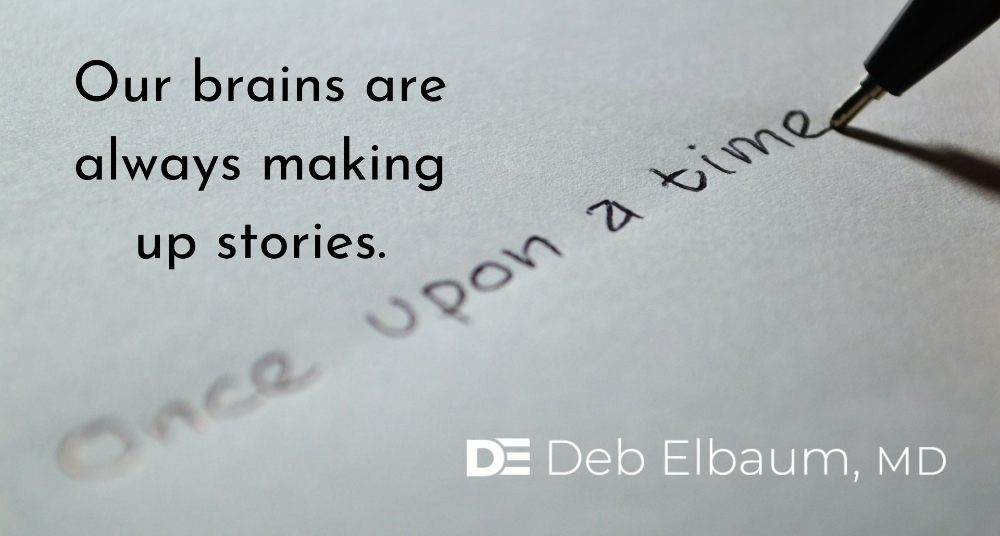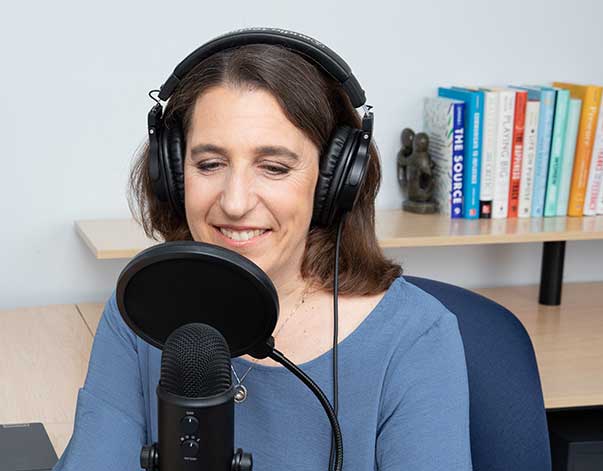
In our interactions and conversations with other people, our brain often jumps to conclusions. Our brain assigns motives to people’s behavior and comes up with reasons people do things – usually without knowing the full story or having all of the information. This is a problem, because our brain has an inherent negativity bias. This means that the stories our brain makes up about other people’s motives are usually negative.
What if you were more aware of when your brain was making up stories, so that you could recognize that they might not be the truth? What if you had a way to get more data so that you didn’t jump to the conclusion that someone was disrespecting you or ignoring you? You would be able to shift your judgment into curiosity and compassion instead.
In this episode, Leadership Coach Deb Elbaum shares the brain science underlying our brain’s habit of making up stories as well as the steps we can take to recognize our stories, reality test them, and gather more complete information about what other people are thinking and feeling.
If you’re ready to change your habit of jumping to conclusions into a new habit of curiosity, press the play button now.
If you want to better understand what others are thinking so that your brain doesn’t jump to conclusions, listen to Episode 11: How to Tell What Someone is Thinking


